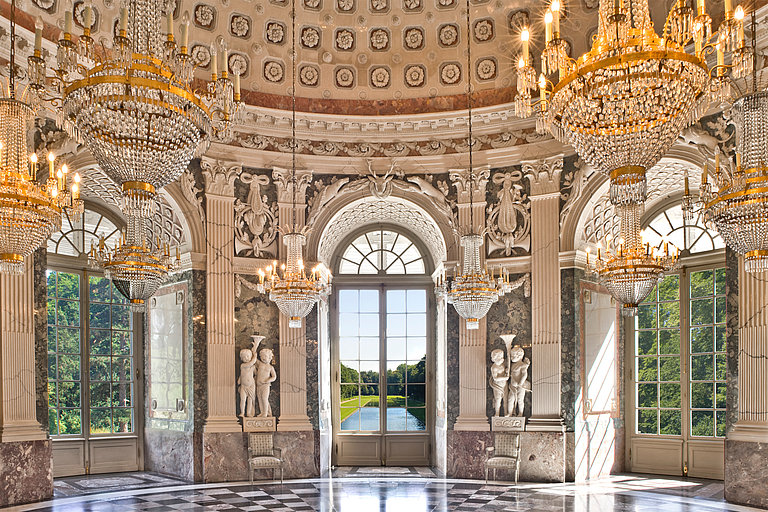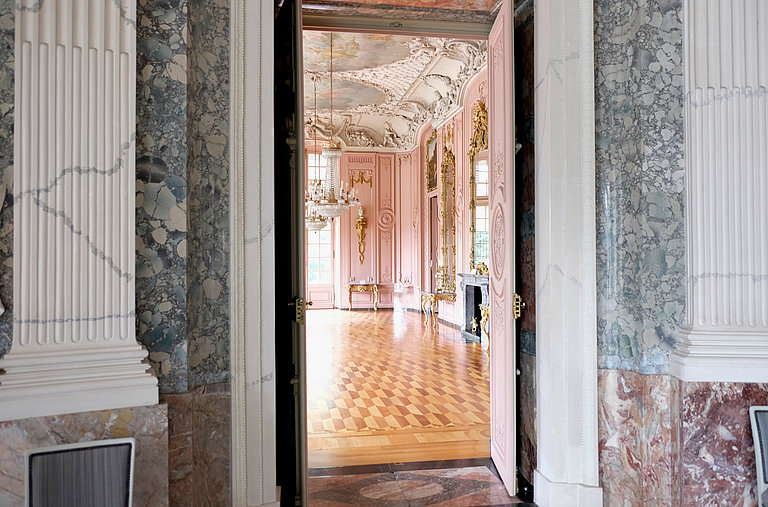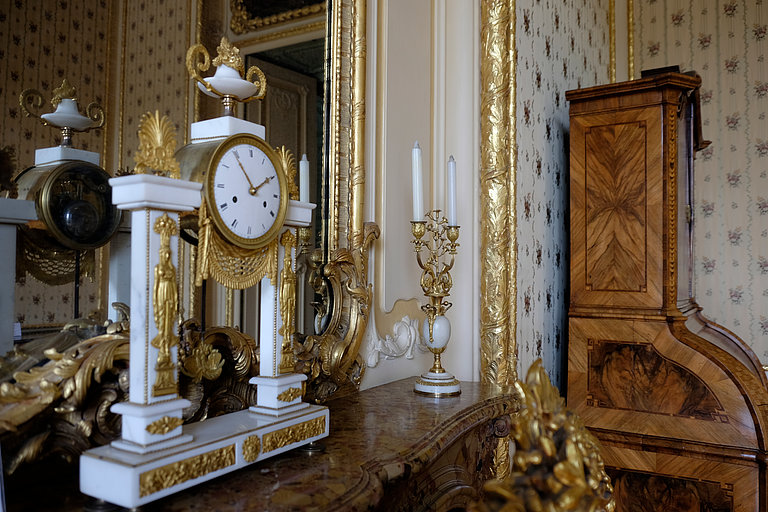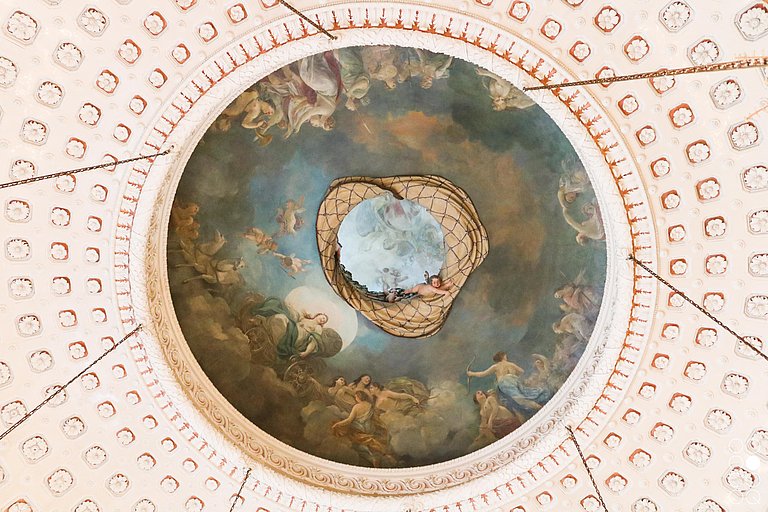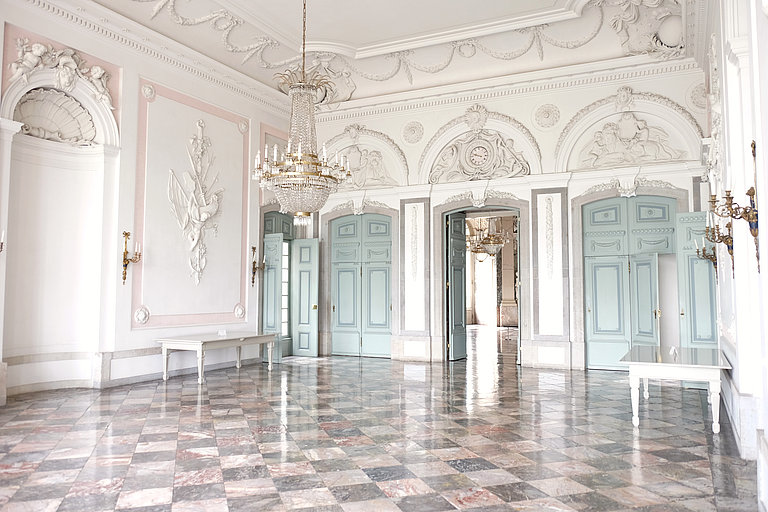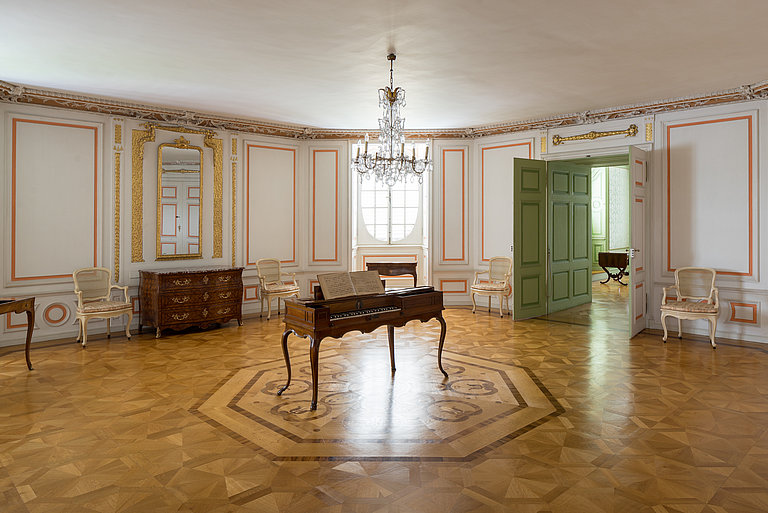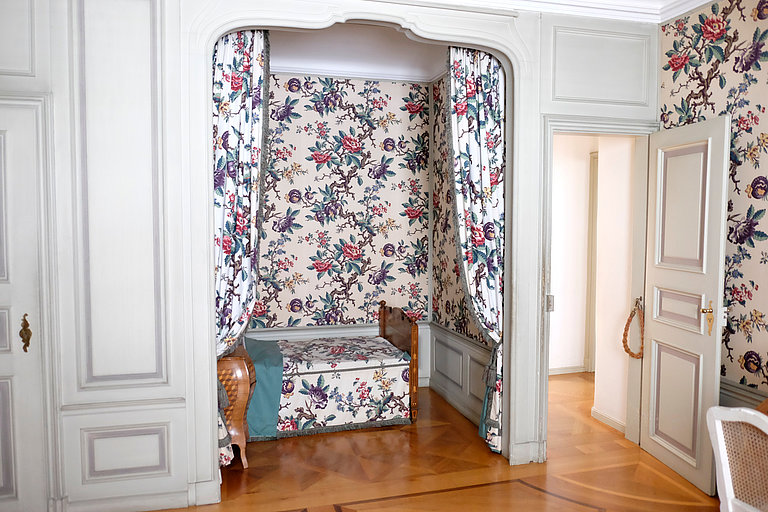MUSEUM CORPS DE LOGIS
Opening hours
-
Monday
11 am - 5 pm
-
Tuesday
11 am - 5 pm
-
Wednesday
closed
-
Thursday
closed
-
Friday
2 pm - 5 pm
-
Saturday
11 am - 6 pm
-
Sunday
11 am - 6 pm

A MAISON DE PLAISANCE
in the south of Düsseldorf
The Corps de Logis (“Living quarters”) is the architectural highlight of Benrath Palace. The main building of the quinquepartite complex formally and functionally aligns with the gardens, the bodies of water and the Park stretching down to the Rhine.
In 1755, Elector Palatine Carl Theodor had the maison de plaisance and hunting château built by French architect Nicolas Pigage. It was designed as a summer hunting lodge near his secondary residence of Düsseldorf and, later on, as a widow’s residence for his wife Elisabeth Augusta.
On account of war, the construction period was interrupted, and the Palace was finished in 1771. Benrath Palace is a typical maison de plaisance (a “pleasure palace”) and combines the architecture and the landscape via visual axes and avenues.
At first glance, the basic structure of the façade corresponds with the concept of an aristocratic lodge and maison de pleasance which since the Renaissance had been predefined to have only one floor (and a half). At Benrath, a state-of-the-art multifunctional building complex was constructed which basically consisted of four floors with about 80 rooms over a subterranean pedestal. The building is connected with the Cavalier’s Wings via underground tunnels and has an integrated dewatering system using the nearby bodies of water. It was used to catch the rain and to flush the raw water from the modern toilets.
The design of the buildings depicts typical lodge symbols: courtly hunt, rural feasts, the pleasures of nature, the promotion and enjoyment of art, literature and science.
Our guided tours
Enjoy a tour with your family, friends and guests and discover the unique architecture, the fabulous decoration and paintings of Benrath Palace. Visit the outstanding vestibule and overwhelming beauty of the main hall, where the Elector and his guests used to dance and celebrate. Find out more about the physical culture, the astonishing rituals of the time and plunge into the courtly life of the 18th century.
Our visitor service will be happy to advise you.
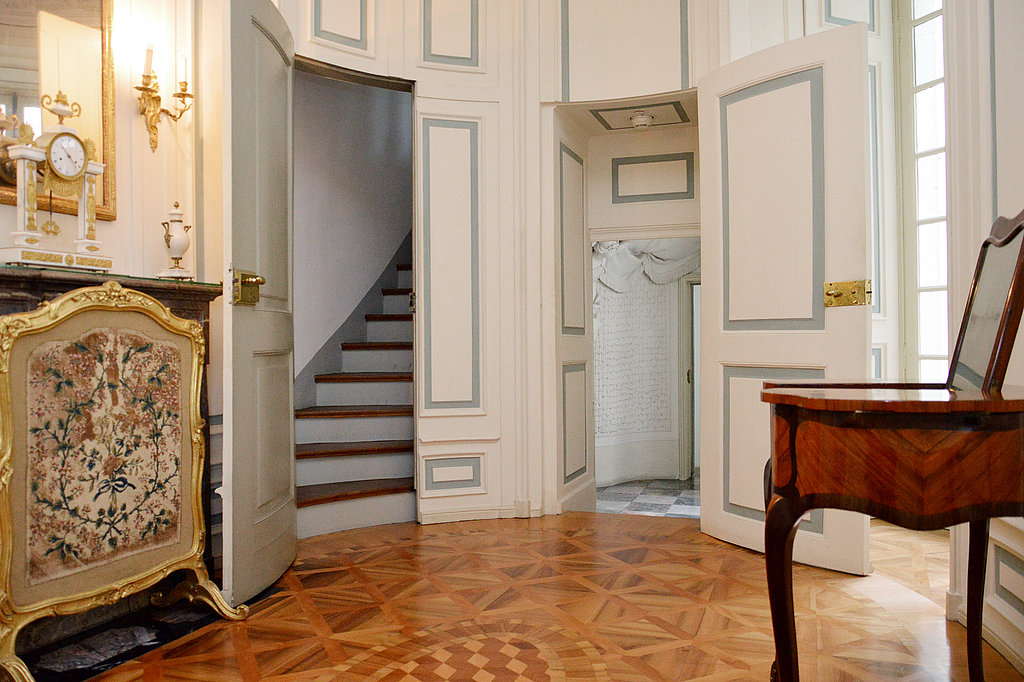
Our Concerts at the Corps de Logis
During the popular Wandelkonzerte, you have the opportunity to experience early music of the 17th and 18th centuries in the breathtaking setting of the Corps de Logis. After dreaming yourself back to bygone times with the atmospheric and historical sounds of the Neue Düsseldorfer Hofmusik, let your impressions take effect afterwards during the pleasure stroll through the Palace.
During the Schluppenkonzert, the music and instruments of the Elector's time are also brought closer to the very young: How was music made in the past and why is a horn actually called a horn? With stories and questions, many children will have their first contact with early music.
Further information about the Music Year at Benrath Palace can be found here.

Our house rules
- Bags, umbrellas and other luggage please stay in the checkroom.
- Bringing drinks and food in the historical rooms is not allowed.
- Please do not touch anything.
- Please take photos for private purpose only and without flash.
- Photo shoots are allowed only with prior permission.
- Please enter the historical rooms in slippers only. Pregnant women, persons with limited mobility and children up to 6 years of age are excluded from this rule.

